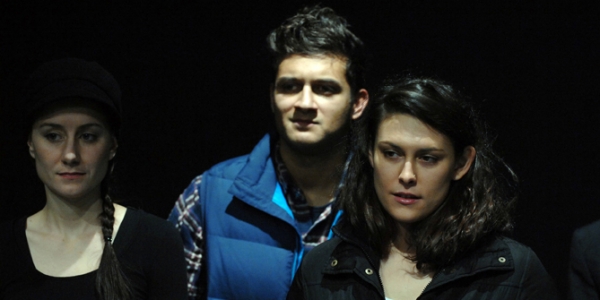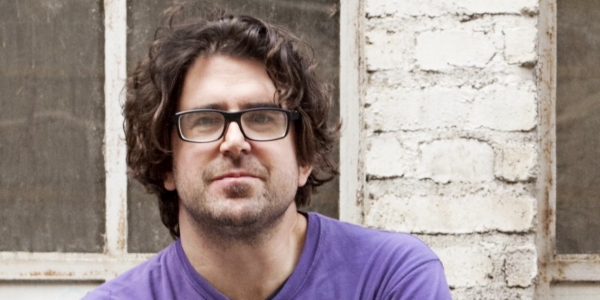“Theatre in Australia is going through a very significant transition at the moment,” he shares. “There is a whole new breed of actors and directors emerging right now and there are lots of changes going on in the major companies and the indie ones. Personally, I love the fact that I’m seeing new male and female artists – who most people had never heard of before – but they’re breaking through now and getting solid positions in directorship, and I remember working with a few of them in the early stages of their careers. Now they’re taking on these big roles in Sydney theatre companies. One trait they all seem to share is that they’re just more… ‘open’. I think it may be a strictly generational thing, in terms of the internet and the whole ‘open’ nature of that as a tool. The way that we communicate now is a lot different from the previous generation – we are so awake to what’s going on, nationally and internationally.”
And while for an occasionally-struggling actor a full-time gig is always very much welcomed, Constable claims the most rewarding part about his new appointment is not so much “earning a crust” but getting the chance to learn from those he is teaching, too.”I’ll admit that I get envious of people who don’t need to go to school for acting,” jokes Constable. “Some of my best friends and contemporaries from Sydney never went to acting school and just learned on the job. And they’re brilliant! People like Ben Mendelsohn who are just extraordinary – he is easily the best actor in the country, in my opinion. Sometimes people have the instinct for it, sometimes they have to learn it – and sometimes they start off learning it but then go on to develop their instinct later in their career. Training can bound you up; the wrong kind of training can totally limit you. Learning in general never stops, especially with acting. Formalised training can teach you what type of actor you are but then you have to use that as a base to keep learning and explore your abilities more. The thing that can mess you up is if you’re not given the opportunity to work because that’s pretty much the only way that you can continue to practice your craft and get better. If you’re not getting any work and you’re working at a cafe or some call centre all day, how the fuck do you get to practice?”
Often the most interesting part about directing young up-and-coming actors is simply observing their interpretation of a scene, as Constable reveals. And while he claims he will always enjoy acting as an art form, it’s directing that allows him to get more hands-on.
“Don’t get me wrong, I love acting and I’m always looking for more acting work,” he insists. “But at the same time, as an actor, you can be disempowered and you can feel like you’re not actually ‘making’ something. It’s more about following direction and makings someone else’s idea happen. It’s always fun acting, but it’s a very different approach. It allows you to express your vision of the piece and whether that’s good or not is totally up to the audience. For me personally, directing is where you get to actually be ‘create’ and be more hands-on, you have a sense of leadership.
“And it’s a very different type of feeling when you get an audience clapping as an actor and as a director. I remember in 2008 I made a film for Tropfest which actually came second, to my surprise! It was called Uncle Johnny. I wrote out the idea and the script in like two hours so it was pretty unbelievable. The best part was to be there and hear that many people laughing and reacting to what you’ve completely created yourself – it’s such a confidence boost, it’s such a buzz!”
But right now, Constable’s heart is set on the hungry and talented students of the National Theatre Drama School. And that’s pretty much what it boils down to at the end of the day – ‘hunger’, according to the new Head Of Acting. “I also think that there has been a proliferation of schools like this – the more indie acting schools. This one has been around for a long time and it’s going through quite an evolution at the moment with the addition of people like myself. Because I’ve been in this industry for some time now, it’s interesting that often you can actually look at these young people and you just know, ‘Yeah, they’re gonna get it, these guys have what it takes’. We’re still in the process of auditioning people but we’ve got people who have already been accepted into the first year, and you just look at them and you can sense the hunger in them. Many people say they want to be actors but they don’t realise that it’s more about the hunger than anything else – because there just isn’t enough work out there.”

